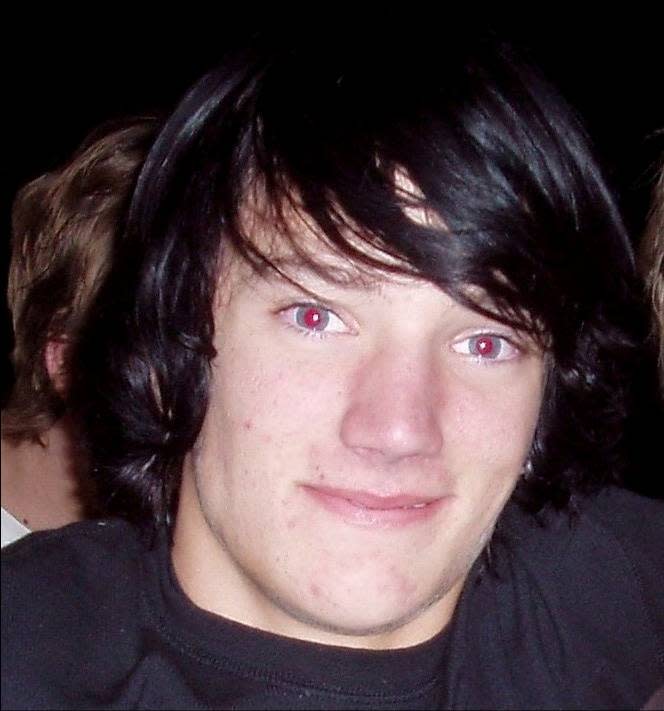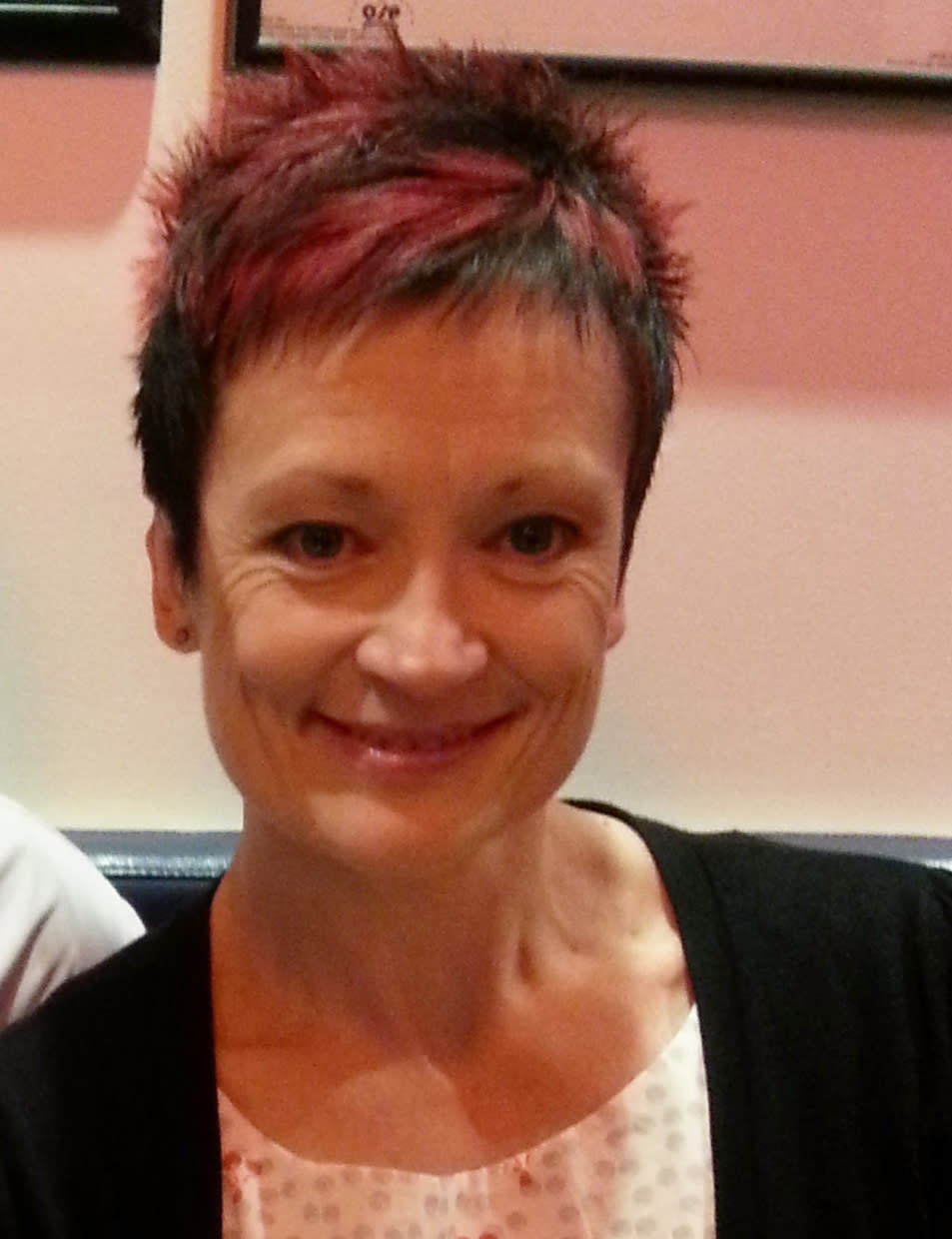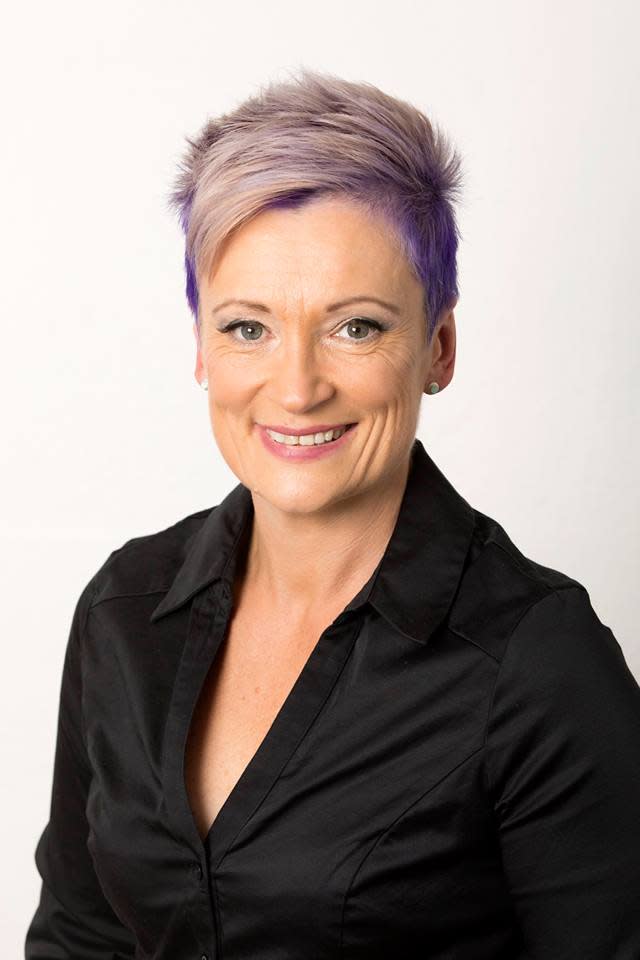Mum reveals the fateful choice that led to sons being killed in road crash
It’s a knock on the door that is every parent’s worst nightmare.
After just arriving home from a holiday and hanging up the phone from telling her eldest Brendon she loved him, it should’ve been Michelle Davis’s two sons standing on her porch.
Instead, there were two police officers who asked if they could come inside.
“Which one is it? Brendon or Mathew?” Ms Davis asked.
She never expected them to say both.
‘Everything turned upside down’
It was July 14, 2005, when Ms Davis arrived back at her home in Morpeth, a suburb of Maitland in the NSW Hunter region, after an overseas holiday.
Her two sons had been staying with their dad, just 15 minutes from her own home.
“I’d been away on a holiday overseas for 10 days. I rang my big boy Brendon at 3.30pm and ended the conversation with, ‘I love you mate’, and he said, ‘love you too mum’,” Ms Davis told Yahoo News Australia.
“They were the last words I heard. By 4.15pm they were both dead.”
In just three minutes everything changed. Brendon Gilson, 19, who was driving to his mum’s house with his 16-year-old brother Mathew, 16, had not long pulled out of his father’s driveway when they crashed.

“He chose to drive 120km/h in a 70 zone. He was a red P-plater – larger than life, nothing will hurt me,” Ms Davis said.
“They didn’t get too far down the road when they lost control and he hit an oncoming vehicle with seven people. They all survived but were all injured. Both boys were killed instantly.
“That’s when our life changed and everything turned upside down.”
The next day Ms Davis had to identify her own children and then plan their funerals as their friends rallied around.
“I didn’t have a clue and I couldn’t function and their dad was not much better,” she said.
“We buried them and had to start living life without them. It took me three years before I could sit in a restaurant and eat a meal among other people.
“I had anxiety and depression from it and I didn’t know what a panic attack was until I had one.”
'She was trapped': Father's mission after young daughter's horrific highway death
'It’s so dangerous': The biggest hazard on the road scaring paramedics
'I can't keep it hidden': Why woman wants you to watch sister's road death
Helping Other Parents Exist
Ms Davis also had a 10-year-old daughter but was struggling to put the pieces of her life back together.
“I probably didn’t hear her speak to me for 14 months. But she and my husband picked up and kept everything going,” she said.
Ms Davis said anybody who had children could never comprehend losing them.

“It’s so out of the norm and no one is prepared for it. I went looking for books – I was a teacher, knowledge is power. I was looking for books on how I was going to live my life,” she said.
With no bereavement groups in her area for people who had lost children, Ms Davis’s only hope was to go to a support group for people who had lost babies to SIDs.
“It was the only place that dealt with losing children even though they deal with babies,” she said.
But through there she met another who had lost a teenage son and they set up the support group HOPE (Helping Other Parents Exist).
ROADwhyz – Teaching young people the ripple effect
Since the tragedy, Ms Davis has been part of establishing ROADwhyz, a program to teach young people about the consequences of their choices, driver safety and the ripple effect caused by road disasters.
The heartbroken mother doesn’t hold back when telling people her confronting story, and if she gets through to just one young person it’s worth it.
“There’s nothing soft about scraping a 16-year-old off the side of the road,” she said.
The program also includes talks from first responders like police and ambulance officers who all share stories about how road tragedies impact on them.
“Our main premise of our program is to talk about the ripple effect of the choices you make and the consequences as a result of poor choices,” Ms Davis said.
“Each of those first responders go home [after a tragedy] and that impacts on their family and their friends and the ripple effect is just massive.

“You think as a student you wouldn’t impact many people, but if you’re doing a talk in a hall with 250 students then 250 people could be impacted by somebody’s choice. Not to mention the six of us who presented and are married with children who will then be impacted by that one choice.
“That’s what we do, we show them the ripple effect and don’t hold back.”
Ms Davis said when talking at schools some students will cry, some will stay silent. But almost every time the students will giggle when she asks one very serious question.
“I ask students to put their hands up if they’ve been a passenger and a driver was speeding and you could see and feel that. About 80 to 90 per cent, sometimes the whole school cohort, will put up their hands – and they often giggle,” she said.
“They’ve thought of a scenario funny at the time and I sometimes get upset and say, ‘I’m speaking to you as a mother, I’m telling you now if your mothers were here right now and they knew this, you would not be allowed in the car with those people any more’.”
Ms Davis said just one school had not giggled at that question because they had buried five students in the months before who lost their lives in a car crash.
‘It’s that sense of bravado’
Ms Davis said her son Brendon was a good driver and could pull a car apart and put it back together. But she said it was his sense of “it would never happen to me” and that sense of “bravado”.
“When kids have their giggle I say to them not one single student is better than my own children,” she said.
“What you are is so lucky you can put your hands up and laugh about a scenario that you know could have taken your life.

“How lucky are you? All I wish is that my boy had been pulled up by the cops,” she said.
“He travelled on that road every day and it would be foolish for me to say his speeding was a one-off. It was a country road and they get on the country roads and they think, ‘I drive this road all the time’, and have probably hooked that corner a million times before.
“But one choice on one day. The choice is yours and so is the consequence sadly.
“It ripples out to others and coming into Christmas it’s frightening.”
While time has allowed Ms Davis the space to heal, she said her heart is still broken but she has learnt to cope. The road safety message is now a very vital part of her life.
“Speed kills. Any speed, any poor choice, it has a ripple effect. It’s Christmas time and you want to get home, but nobody wants to be at our Christmas table.”
Teen drivers taking risks
A report released this week by the Australian Institute of Family Studies revealed there were four main types of risky behaviours drivers aged 16 and 17 engaged in.
The report identified speeding, driving when fatigued, driving when affected by alcohol or illegal drugs and driving without a seatbelt or helmet as the main issues.
According to the report, close to 80 per cent of P-platers and 55 per cent of learner drivers had committed a dangerous act behind the wheel.
More than one in 10 teens who did not have a licence had taken risks, and one in five failed to wear a seatbelt or helmet while on a motorbike.
Do you have a story tip? Email: newsroomau@yahoonews.com.
You can also follow us on Facebook, Instagram and Twitter and download the Yahoo News app from the App Store or Google Play.




